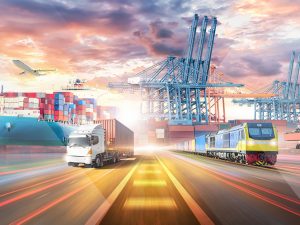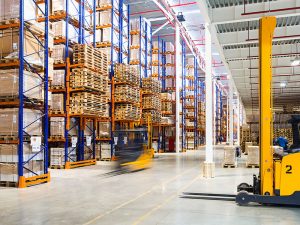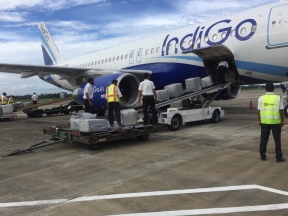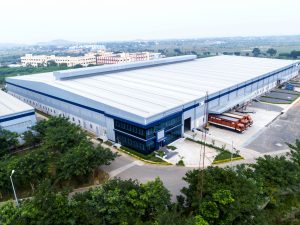Kamesh Peri, CEO, Celebi Delhi Cargo Terminal Management India, says, “Achieving 10 Million MT any 2030 requires meticulous assessment of demand, capacity and infrastructure issues. Outside of traditional international and domestic traffic, focus on transhipment volumes is a must. Developing cargo hubs would be another significant enabler. Tier 2 and 3 cities will have to emerge as crucial players, housing dedicated cargo terminals. Further, developing a robust road feeder network to supplement air capacity gaps in certain regions needs to be considered. This intricate air-ground expressway will seamlessly connect Tier 2 and 3 with key cargo hubs. Admittedly challenges exist, Policy inertia sometimes stifles progress, so all the government bodies along with trade need to come together as one unit, indicating a cargo movement, streamlined participation and decision making.”
Read More »DIAL expands network to boost capacity on DEL-GYD route
Delhi International Airport Limited (DIAL) announced the news of its latest expansion, with the addition of Silk Way West Airlines, operated by Hercules Aviation (GSA). The carrier will be using B777 aircraft, boosting its capacity by 100 MMT on the DEL-GYD route. “This expansion not only signifies our commitment to excellence but also accelerates more efficient cargo movement between India and Azerbaijan,” DIAL’s LinkedIn post said.
Read More »‘EU outlines new process for cargo entry via sea, road, rail to ensure safety’
The European Union’s new customs pre-arrival safety and security system – Import Control System 2 (ICS2) – will introduce a new process for entry of goods by maritime and inland waterways, road and rail in the EU as of 3 June 2024. This is the third phase or release of the implementation of the new system that will extend safety and security data reporting requirements to all modes of transport. Similar requirements already went into force for air transportation of goods. With this third release, maritime and inland waterways, road and rail carriers will also need to provide data on goods sent to or through the EU prior to their arrival, through a complete Entry Summary Declaration (ENS). This obligation also concerns postal and express carriers who transport goods using these modes of transport as well as other parties, such as logistics providers. In certain circumstances, final consignees established in the EU will also have to submit ENS data to ICS2. Traders are strongly advised to prepare in advance for Release 3 to avoid the risk of delays and non-compliance. Affected businesses will be required to make sure they collect accurate and complete data from their clients, update their IT systems and operational processes, and provide adequate training to their staff. From 11 December 2023, traders will also need to successfully complete a self-conformance test before connecting to ICS2, to verify their ability to access and exchange messages with customs authorities. EU Member States will grant authorisation, upon request, to the affected traders to gradually connect to ICS2 within a time-limited deployment window. Member States can grant the deployment window anytime within the following timeframes: from 3 June 2024 to …
Read More »14 Indian tier 2 cities become warehousing hub for 35 global brands
CBRE South Asia’s latest report titled, ‘Tier-II Cities: The Time to Shine’ highlights that nearly 35 major domestic and global retail brands entered 14 tier-II cities in the Jan-Sep’23 period, indicating a surge in warehousing activity in these locations. These 14 cities include Chandigarh, Jaipur, Indore, Goa, Mangalore, Kochi, Lucknow, Patna, Ranchi, Guwahati, Bhubaneshwar, Vizag, Mysore, and Coimbatore. As per the report, several domestic and international retail brands, including Croma, Armani Exchange, Malabar Gold & Diamonds, Reliance Smart, Tanishq, H&M, Marks & Spencer, GAP, Starbucks, Pizza Express, Under Armour, among others, have expanded their retail footprint to tier-II cities in Jan-Sep’23 period. According to the report, the total retail stock in these 14 tier-II cities stood at 29 mn. sq. ft. as of Sep’23, with Jaipur, Lucknow, and Chandigarh each boasting retail stock ranging between 3 to 7 mn. sq. ft. The retail development in these cities has been a healthy mix of high streets and malls. The total retail supply recorded in these 14 cities has been ~2.4 mn. sq. ft. during Jul-Sep ’23. Top cities dominating supply addition during this period include Chandigarh, Jaipur and Lucknow. The total absorption across the 14 cities stood at 2.4 mn sq. ft. in Jul-Sep’23 period, led by Kochi, Jaipur, and Goa.
Read More »IndiGo plans to expand fleet to meet e-com, perishables & pharma demand
With an aim to maximize its freighter operations in 2024, IndiGo is tailoring its services to cater to the specific cargo needs, such as e-commerce, perishables, and time-sensitive items. The company is also focusing on enhancing the cargo terminal infrastructure in Tier-1 and Tier-2 cities, as well as evaluating the addition of more routes for China and Southeast Asia, to create air cargo-friendly routes, ensuring efficient and seamless transportation. IndiGo leverages its unique advantage by strategically deploying freighters on high-demand routes that complement its extensive domestic network. It provides belly cargo space in its fleet of 300+ aircraft along with three dedicated A321F freighters are key to achieving a target 10 million MT by 2030.
Read More »‘Policymakers must enhance supply chain efficiency, cut cost’
Mahendra Shah, Chairman and Managing Director, V-Trans (India) shares, “Attention of the current Government has been substantial on enhancing logistic and supply chain efficiency. We expect policymakers to support the same further and also take steps to reduce supply chain costs. Many measures taken to boost manufacturing have started showing results and an efficient supply chain will boost the cause further. In the forthcoming budget, we look forward to improved outlay for logistics Infrastructure. Regulatory and budgetary support for Fast-tracking multimodal logistics infrastructure projects is needed. In the last year, ULIP has already been operational, but the need of the hour is its faster adoption across the stakeholders. In the forthcoming budget, steps for easy usage of ULIP will help in waste reduction and improve interoperability in logistics. It is a sector that has a significant contribution to carbon emissions. We look ahead towards the initiatives for faster adoption of green logistics. Incentives and easier access to funds for the adoption of sustainable logistics can be a good option to move forward. Being a major player in road transportation, we would like to draw the attention of the Government towards issues related to drivers. The government needs to introduce some schemes in the logistics industry for drivers. Last but not least will be bringing petroleum products under the purview of GST. Fuel is the largest component of our expenses. Once the industry gets input credit benefit on fuel, it will be a major boost.”
Read More »IndoSpace signs MoU with Tamil Nadu Govt, to invest Rs. 2000 crore
IndoSpace has signed MoU with the Tamil Nadu Government to invest staggering INR 2000 crore to enhance the state’s industrial landscape and economic growth. This investment by IndoSpace is anticipated to generate 15,000 new jobs, providing a substantial boost to employment opportunities in the state. Rajesh Jaggi, Vice Chairman – Real Estate, Everstone Group, said: “Tamil Nadu continues to be a very important destination for us in developing industrial parks. It makes us proud that in providing world-class industrial logistics facilities to our clients, we are also able to contribute to enhancing the state’s industrial infrastructure. Signing this MoU is significant for us as it reaffirms the government’s trust in our capabilities. We are confident that this partnership will not only contribute to Tamil Nadu’s economic development but also work towards strengthening the overall economy for the nation.” IndoSpace has an existing land bank of approximately 600 acres in the region. With an expansive presence of 14 Grade A industrial and logistics parks strategically located around the main industrial hubs, IndoSpace has developed and leased around 13 mn. sq. ft. with a total investment of approximately INR 4000 crore in the state. This MOU with the Tamil Nadu Government is a part of the organisation’s continued commitment towards supporting industrial requirements and has led to the planning of an additional 5 mn. sq. ft. of land in the state.
Read More »‘Embracing cloud-first approach to enhance cargo handling processes’
“With ongoing enhancements to our online booking capabilities, we will continue to invest in our digital platforms, shares ” Camilo Garcia Cervera, Chief Sales and Marketing Officer at IAG Cargo. He adds, “Embracing a cloud-first approach, we’re migrating all applications to cloud environments for scalability, flexibility, and improved data accessibility. The airfreight industry is rapidly embracing a digital future, marking a transformation shift in approach. At IAG Cargo we have recently made substantial technological investments in our operation, notably in our cargo handling capabilities, opening a semi-automated state-of-the-art Premium facility at London Heathrow, and at our Madrid hub we have implemented a new Material Handling System– which enhances efficiency and automation of cargo handling processes.””
Read More »‘Digital India & ‘Start-Up India’ will propel economic growth’
Vipin Vohra, Chairman, Continental Carriers, says, “In the forthcoming budget, Finance Minister Nirmala Sitharaman faces the challenge of charting India’s economic trajectory in an election year. Acknowledging the nation’s aspirations to become the third-largest economy by 2030, this interim budget serves as a pivotal guide for the road ahead. With favorable conditions of low inflation and robust GDP growth, the government’s focus on the ‘Make in India,’ ‘Digital India,’ and ‘Start-Up India’ initiatives has attracted multinational corporations, propelling economic expansion. The logistics industry, a crucial driver of economic efficiency, anticipates key policy measures to streamline operations. Expectations include simplified regulations, a ‘single window’ for approvals, and a reconsideration of permanent GST exemptions for international transportation services. The budget strategy must align with the PLI schemes and infrastructure investments to mitigate domestic logistics costs and enhance India’s supply chain efficiency, addressing current disparities in global Logistics Performance Index rankings. Additionally, the implementation of the National Logistics Policy and ‘Make in India’ schemes necessitates the alleviation of congestion at international airports. The budget should incentivize off-airport cargo handling locations to ease this strain. Furthermore, a growing call for increased budgetary allocations towards upskilling and vocational training highlights the need to bridge the skill gap and empower the workforce for effective utilization of emerging technologies in the logistics sector. Rationalizing and simplifying cargo movement costs, fostering an ‘Open Sky Policy,’ and tapping into the commercial potential of Tier II and Tier III cities are essential components for India to achieve its ambitious 10 MMT annual cargo throughput target by 2030.”
Read More »‘Red Sea crisis will hike air cargo volumes, if rates stay same’
Tushar Jani, Group Chairman, Cargo Service Center (CSC) said, “The current trouble in the Red Sea will increase some air cargo volume however if the airline increases freight rate, then it will become counterproductive. The industry must work towards keeping a reasonable rate to achieve good growth and allow the supply chain to remain more productive and stable with air cargo compared to increased sea freight cost, provided air cargo remains affordable. We must learn the lesson of Covid where the air cargo rates became so exorbitant that some commodities moved their supply chain through maritime shipping. This is a golden opportunity for air cargo to convert those lost tonnages from maritime shipping back to air cargo, provided we keep the stability of the air freight rates keeping in mind the long-term advantage of growth. This will help in achieving the 10MMT target set up by the Government and Industry mutually.
Read More » Cargo Breaking News
Cargo Breaking News









